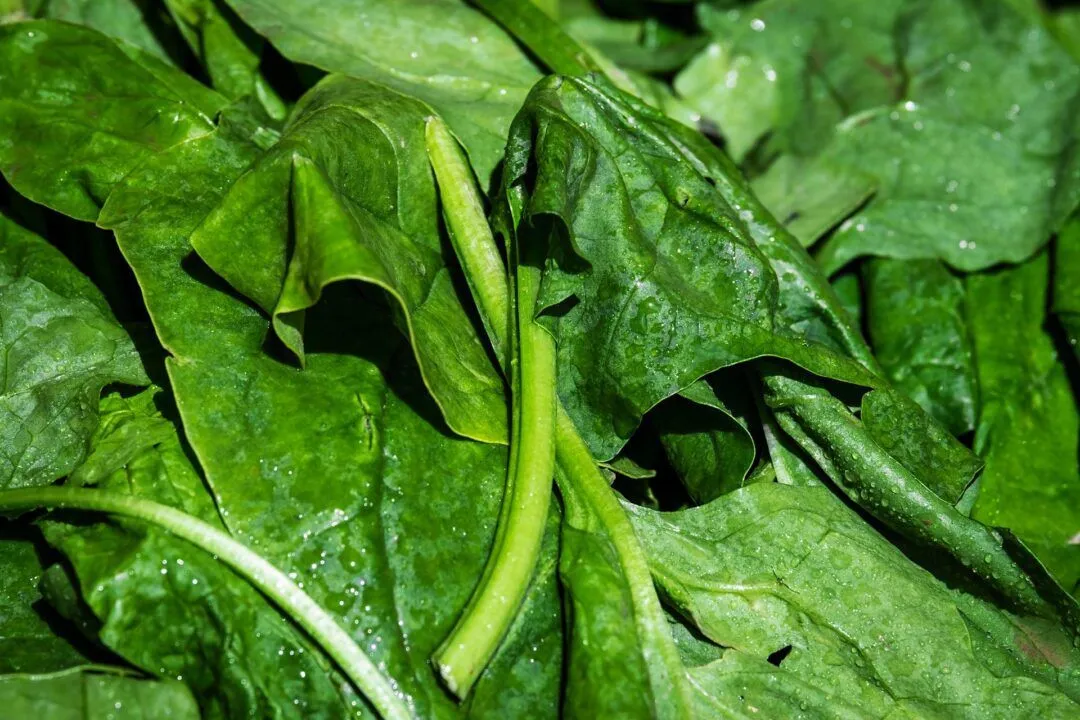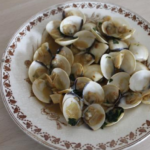Spinach is a green leafy vegetable that is often eaten cooked or sautéed with other ingredients. However, as there are other leafy vegetables that are usually eaten without cooking, we often wonder if it is bad to eat raw spinach. Well, the truth is that there is no single answer, since everything will depend on the properties of the spinach that we are interested in taking advantage of, and in this article we will see why.
Cooked vegetables have their nutritional values altered, it is true, but so are raw vegetables. In this way, we do not take advantage of the nutrients of the same ingredient whether we cook it or not, this being the main reason that we should make us consider which option is the best for our body. Read on and find out if and how you can eat raw spinach.
Is raw spinach toxic?
No, raw spinach is not toxic. Now, if what we ask ourselves is whether it is good to eat raw spinach, the answer may vary. When in doubt as to whether it is better to eat raw or cooked vegetables, the truth is that the answer depends on the type of vegetable, since there are vegetables that lose nutrients when cooked, while others are more beneficial if we eat them cooked.
The heat of the fire considerably reduces the percentage of vitamin C in vegetables, some of the B vitamins and enzymes. On the other hand, this same heat favors the absorption of beta-carotene in the body, the release of certain antioxidants and carotenoids, and the absorption of minerals such as iron. Therefore, it is best to include raw and cooked vegetables in our diet, as well as consuming the same food in both ways. Thus, for example, peppers, which are very rich in vitamin C, are best eaten raw to make the most of their properties. On the other hand, and despite what many may believe, the carrot is better eaten cooked, since in this way it provides more cardio protectors, carotenoids and the absorption of beta-carotene is encouraged.
Now, what about spinach? Is it better to eat it raw or cooked? It will depend on the nutritional values that we want to enhance, and that we will see in the next section.
Nutritional value of spinach
Before talking about the properties of raw spinach, it is necessary to detail the nutritional value of this vegetable per 100 grams of product, according to data provided by the United States Department of Agriculture:
- Water: 91.40g
- Energy: 23 kcal
- Protein: 2.86g
- Carbs: 3.53g
- Total fiber: 2.2g
- Sugars: 0.42g
- Calcium: 99mg
- Iron: 2.71mg
- Magnesium: 79mg
- Phosphorus: 49mg
- Potassium: 558mg
- Sodium: 79mg
- Zinc: 0.53mg
- Total vitamin C: 28.1mg
- Vitamin B1: 0.078mg
- Vitamin B2: 0.189mg
- Vitamin B3: 0.724mg
- Vitamin B6: 0.195mg
- Vitamin B9: 194 µg
- Vitamin A: 469 µg
- Vitamin E: 2.03mg
- Vitamin K: 482.9 µg
- Saturated fatty acids: 0.063 g
- Monounsaturated fatty acids: 0.010 g
- Polyunsaturated fatty acids: 0.165 g
Properties of raw spinach
All the above nutritional values are present in raw spinach and translate into the following properties:
Source of vitamin C and B
As we have already mentioned, when cooking vegetables, practically all the vitamin C is lost, so to make the most of this benefit of spinach, it is better to consume it raw. The same thing happens with B vitamins, they are lost with heat.
Low in calories
We have already seen that 100 grams of spinach have 23 calories, which are not increased by not adding oil to cook, or salt to boil, etc. Of course, if we prepare a spinach salad we will have to check the ingredients that we add to make an approximate calculation of the total calories of the dish.
In a balanced diet, raw spinach is good for weight loss.
Natural antioxidant
Thanks, precisely, to its richness in vitamin C, raw spinach has excellent antioxidant properties, making it ideal for combating the effects of free radicals, caring for skin and hair health.
Boosts the immune system
Thanks to its important nutritional values, raw spinach helps strengthen the immune system, a fact that allows us to enjoy better health in general.
Regulates intestinal transit
Both because of the fiber and the B vitamins, raw spinach favors the digestive system and helps regulate intestinal transit. For this reason, it is a perfect food to combat constipation.
It is good for pregnant women
If you are wondering if you can eat raw spinach during pregnancy, the answer is yes. Due to the contribution of folic acid, raw and cooked spinach is good during pregnancy, always under the supervision of a doctor.
Contraindications of raw spinach
One of the biggest disadvantages of eating raw spinach is that its richness in beta-carotene and iron cannot be absorbed as well as when we eat it cooked. Therefore, if you want to take advantage of these benefits, it is necessary to cook the vegetable. In addition to this, the most notable contraindications are the following:
- Its consumption is not recommended in case of kidney problems because spinach is rich in oxalic acid.
- It is also not recommended to eat spinach, either raw or cooked, if you suffer from a disease related to the joints, such as arthritis or gout, due to the same oxalic acid.
- It is not recommended to give raw or cooked spinach to babies under one year of age due to its high nitrate content. Once they reach 12 months of life, it should be the pediatrician who decides if it is time to introduce these foods.
Is it good to eat raw spinach every day?
Eating spinach every day is good, as long as its presentation is varied. Due to the fact that depending on whether we cook them or not, their properties and nutritional values vary, it is always more advisable to eat spinach raw on some days and cooked on others. Remember that:
- Raw spinach is a great source of vitamins, but the body absorbs its minerals less well.
- Cooked spinach loses much of its vitamins C and B, but allows the body to absorb minerals and beta-carotene much better.
In this way, the decision to eat raw or cooked spinach should be made based on your own needs, also taking into account that there are many other beneficial vegetables that you should not forget to maintain optimal health.
How to eat raw spinach?
To eat raw spinach it is very important to take into account two main factors:
- Vegetables should be as fresh as possible, since their nutritional value decreases over time.
- It is essential to wash the spinach well before eating it to remove any remaining dirt they may have.
In addition to this, it is essential to reserve the vegetables in the refrigerator until the moment of consumption to slow down as much as possible that loss of nutrients that we are commenting on.
Recipes with raw spinach
Now that you know that eating raw spinach is good, the properties that this food can contribute to your health and possible contraindications, let’s see some ideas to know how to prepare raw spinach:
Spinach salad
If what we want is to follow a balanced and healthy diet, a raw spinach salad is ideal, as long as we know what foods to complement it with. Thus, we can add any of these products to the salad:
- Cooked or grilled chicken
- Hard-boiled egg
- Natural canned prickly pear (not in oil)
- Avocado
- Fresh cheese
- Strawberries
- Manzoni
- Legumes
- Onions
- Mushrooms
- Tomatoes
- Salmon
And to season the spinach salad, we can choose a tablespoon of olive oil, lemon juice or low-sugar soy sauce. You will find some of these recipes:
- Spinach and Strawberry Salad
- Spinach and tomato salad
- Spinach salad with chicken
- Spinach and salmon salad
Now, if we feel like giving ourselves a treat and preparing a more elaborate raw spinach salad and, why not, caloric, we can choose:
- Bacon
- Goat cheese
- Nuts
- Yoghurt sauce
- Pink willow
Spinach juice
Without a doubt, another way to eat raw spinach is to make a juice with it. This is especially useful for those people who show a certain rejection towards this type of vegetables. Of course, we must emphasize that between eating whole spinach and drinking spinach juice, it is always much more advisable to opt for the unground version. Why? Very simple, because by grinding the food the digestive process is much simpler, so it passes quickly into the blood and the sugars that are found naturally in the ingredients accumulate, meaning that, in the long run and in the event of drinking a lot of juices, they turn into fats. By eating the whole food, digestion runs its course and sugars reach the brain properly. Likewise, when crushing the vegetable, part of the fiber is lost.



